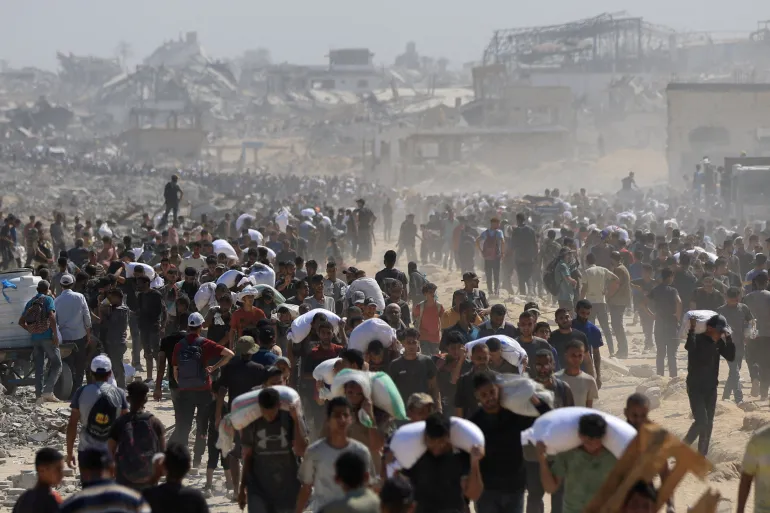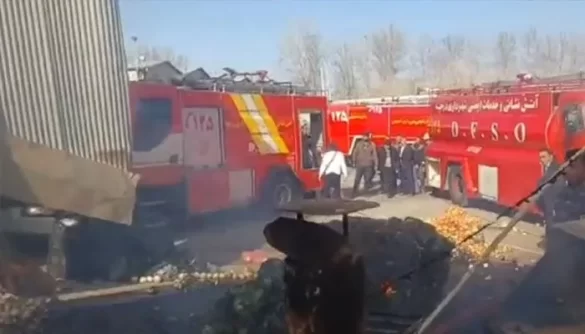Escalating Violence in Gaza
Israeli airstrikes on Gaza continued unabated over the past 24 hours, killing at least 30 more Palestinians, according to Arab media reports. A detailed report on these strikes can be found here: Escalating Violence in Gaza: Israeli Strikes Kill at Least 30 Palestinians. Among the dead were 15 civilians who had been queuing for food aid when the attack struck.
The latest fatalities highlight the intensifying humanitarian crisis in the besieged enclave, where more than two million people remain trapped under blockade conditions. Witnesses described scenes of panic as families gathered near aid trucks, hoping to secure flour and canned goods, when the airstrikes hit.
Starvation Adds to the Death Toll
While bombardments continue to cause heavy casualties, hunger has emerged as an equally deadly threat. Shortages of food, clean water and medicine are worsening.
Recent figures indicate that at least 453 Palestinians have died due to malnutrition and hunger-related illnesses since the conflict escalated last year. Disturbingly, 150 of those victims were children.
Local aid workers warn that the number could rise dramatically if relief convoys are not allowed in at scale. The World Food Programme has already classified northern Gaza as facing conditions of “catastrophic hunger.”
Overall Casualty Figures Since October 2023
The conflict, which reignited in October 2023, has resulted in staggering loss of life. Updated statistics show:
-
66,055 Palestinians killed
-
168,346 injured
The relentless strikes have destroyed thousands of homes, schools, hospitals and basic infrastructure. International observers describe the situation as one of the worst humanitarian crises in recent decades.
Despite mounting international concern, no concrete measures have been taken to halt the Israeli offensive or to enforce a sustained ceasefire.
Rising Tensions in the West Bank
The violence is not confined to Gaza alone. Israeli forces have intensified operations in the occupied West Bank, leading to further tensions.
Reports indicate that two Palestinian children were recently detained on charges of espionage. Human rights groups have condemned the arrests, arguing that children are being subjected to arbitrary detentions and intimidation tactics.
These developments have deepened fears that the conflict is spreading beyond Gaza, fueling instability across Palestinian territories.
Global Appeals for a Ceasefire
The United Nations, the International Committee of the Red Cross and several humanitarian organizations have repeatedly called for an immediate ceasefire. Yet, despite the appeals, little progress has been made.
Diplomatic efforts at the Security Council have stalled due to political divisions, with major powers unable to agree on binding resolutions.
In the meantime, local organizations inside Gaza are urging the international community to move beyond statements of condemnation. They insist that without concrete actions — such as opening humanitarian corridors and pressuring Israel to halt strikes — the civilian death toll will continue to rise.
A Mounting Humanitarian Tragedy
For Gaza’s residents, daily life has become a struggle for survival. Families face the impossible choice of searching for food under bombardment or staying indoors without sustenance.
Medical workers report overwhelmed hospitals, lacking both medicine and electricity. International agencies warn of an imminent collapse of public health systems if fuel and supplies do not reach the territory soon.
As one Gaza-based NGO worker put it: “Condemnations do not feed our children. We need the world to act, not just speak.”















